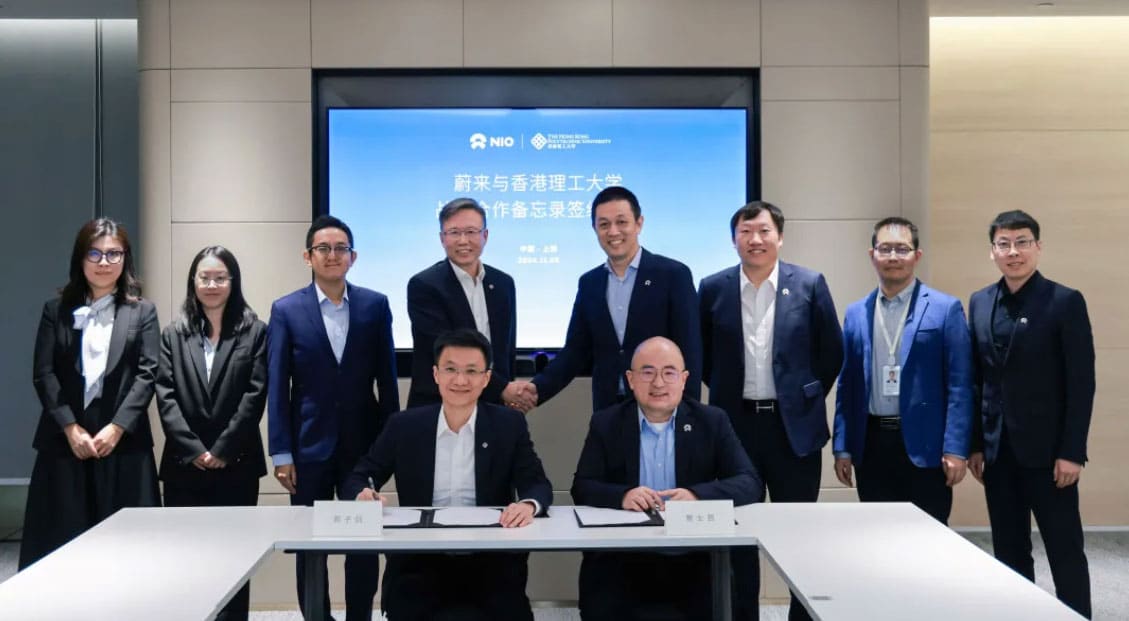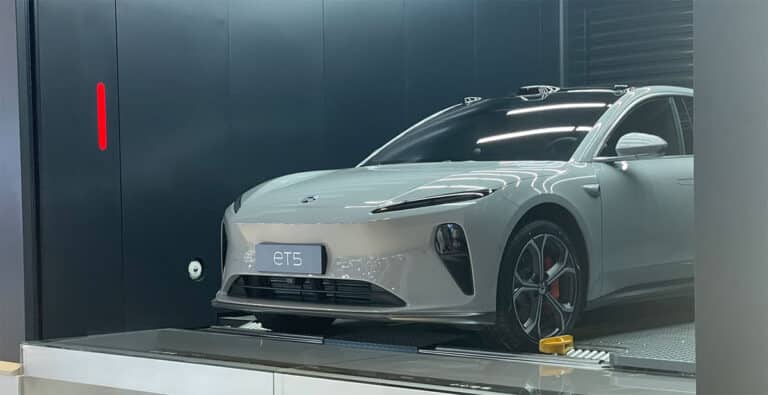The two will work together to promote the R&D of new power battery technologies and talent development, according to an announcement.

Nio (NYSE: NIO) and Hong Kong Polytechnic University (PolyU) have entered into a partnership to jointly conduct research and development in areas including battery technologies.
The two sides signed a memorandum of understanding for a strategic partnership at Nio's global headquarters in Shanghai, which was witnessed by PolyU's president, Teng Jin-Guang, and Nio's founder, chairman and CEO, William Li, according to an announcement by the university yesterday.
PolyU and Nio will work together to promote the research and development of new power battery technologies for electric vehicle (EV) and talent training, the announcement said.
Researchers from the two will conduct joint R&D centered on forward-looking, key and engineering application technologies for EVs, as well as basic research on high-end equipment manufacturing and related industries, the university said.
A project on next-generation power and energy storage batteries, led by PolyU's professor Zheng Zijian's team, was awarded funding from the Hong Kong SAR government in May, according to the announcement.
The project focuses on the development of an ultra-lightweight, ultra-thin, flexible and robust conductive composite film that can be applied to collectors in commercial lithium-ion and solid-state lithium batteries to dramatically increase the energy density of the batteries, the announcement said.
The announcement did not mention further details, including whether the research results will be used in the next step of joint research and development between the two.
Nio said in an earnings call on June 9, 2022 that the company would develop batteries itself and had assembled a team of more than 400 people for the purpose, hoping to gain a greater competitive advantage.
The company held a battery partner forum in Hefei, Anhui province, last February, when it announced the start of construction of the first phase of its battery site.
Nio's battery R&D team topped 800 people, and annual R&D investment was expected to exceed RMB 1 billion ($140 million), the company's founder, chairman and CEO William Li said at the time.
A Reuters report on February 24 last year said Nio planned to build its first battery plant to produce large cylindrical batteries similar to those used by Tesla, with an annual battery capacity of 40 GWh.
However, the company announced plans to reduce jobs by around 10 percent last November, when some media reports suggested that the battery and phone businesses could be the hardest hit by the layoffs.
In an earnings call on December 5 last year, Nio's management essentially confirmed the downsizing of its battery business.
Nio didn't see the possibility of the business helping to improve gross margins over a three-year period by manufacturing its own batteries, so the company had opted for other approaches, the company said on the call.
Nio would continue to work on battery cells, materials, and packs, but would commission production to reduce costs, it said at the time.
Nio's current battery suppliers are mainly CATL, CALB. It has also built a semi-solid-state battery pack with a 150-kWh capacity with Beijing WeLion New Energy Technology, which is already in use.
It has introduced BYD (HKG: 1211, OTCMKTS: BYDDY) as a new battery supplier, starting with the L60, the first model from sub-brand Onvo.
($1 = RMB 7.2614)

